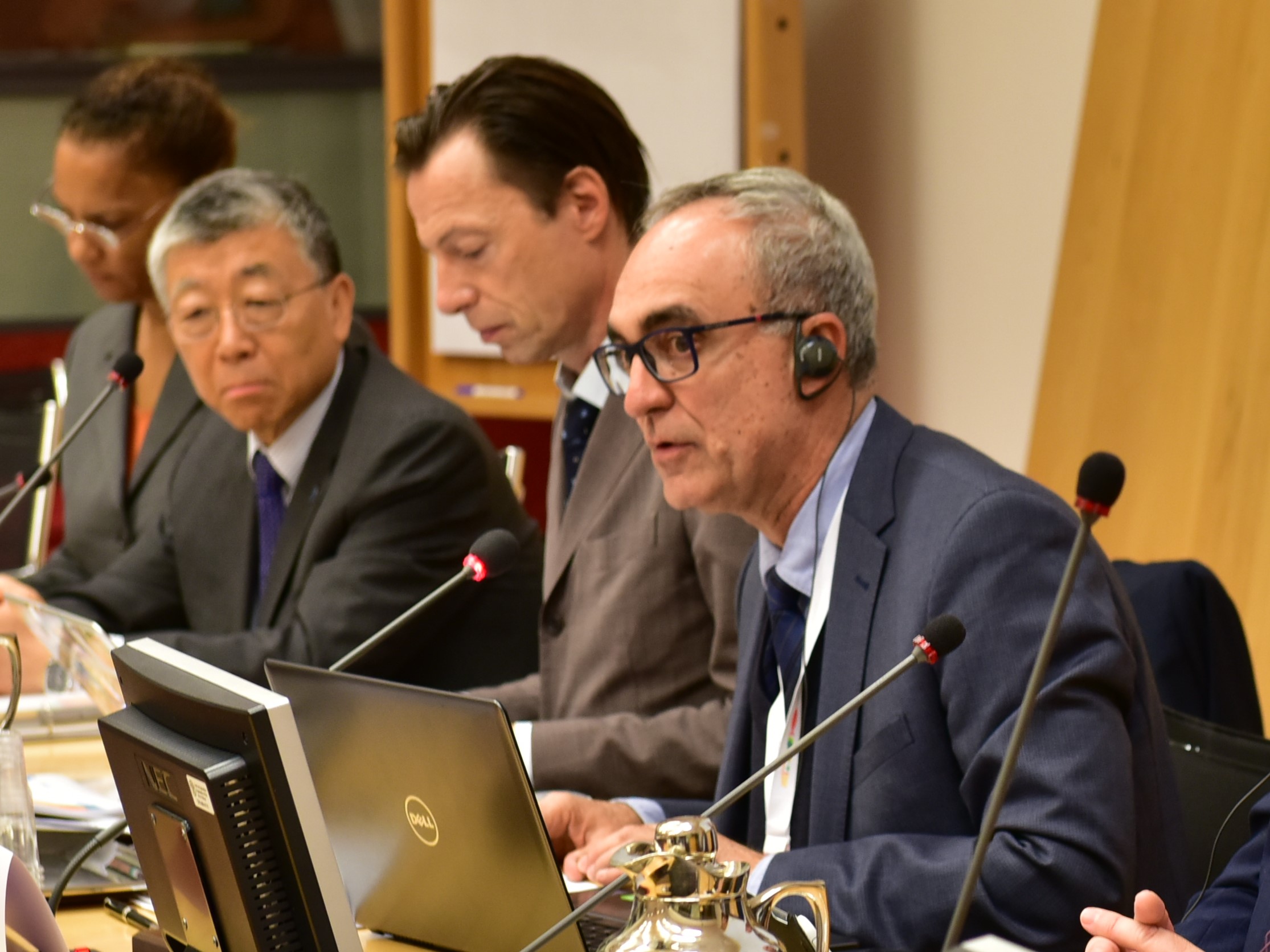As a group we have much to achieve
As the Executive Committee of the Codex Alimentarius Commission began its three-day meeting in Rome, new Chair, Mr Guilherme da Costa, spoke of the goals for Codex under his leadership.
I believe in working together as a group and we have much to achieve.
Guilherme spoke of the need to prioritise and firstly to build together the new strategic plan (2020-2025) which will give Codex the base to develop its work moving forward. One fundamental element will be strengthening participation of members which can only lead to better results for the organization in terms of its mandate to protect human health and promote fair practices in food trade.

Chair Codex Alimentarius Commission Guilherme da Costa
Strong national Codex committees will lead to better participation and involvement from those across the production chain who need and use Codex standards.
Practical support for national capacity building
Guilherme underlined the impotence of putting the right people around the table at the national level all working towards a single country objective. Demonstrating the importance of Codex in daily life can persuade those who hold the key to investment of the need to develop strong national capacities.
Seeking funding for scientific advice for Codex?
The key to explaining the importance of the science underpinning Codex standards and to mobilising resources is through collaboration. Guilherme spoke of the need to engage with the parent organizations, stressing the links between food security and Codex work on food safety. He also spoke of the need for continued cooperation with members and his willingness to explore all possible avenues of funding for the sustainability of the scientific advice programmes whilst maintaining the independence of the work.
Working more closely with Codex committees
The new Chair explained how, with the three vice Chairs, he intends to attend meetings where possible to lend support and advice on key or particularly challenging issues. He also emphasised the importance of taking every opportunity to promote the work and values of Codex to different groups and audiences.
The future of Codex
Looking ahead, Guilherme emphasised the need to develop standards that are practical, immediately applicable – based on science – and that really do protect human health and that make trade easier for everyone.
We must do what is necessary to be done and not what is beautiful to see.
Download and listen to the full interview here.
At the heart of the Codex mandate are the core values of collaboration, inclusiveness, consensus building and transparency. Governmental and non-governmental, public and private organizations alike play a vital role in ensuring Codex texts are of the highest quality and based on sound science.
Codex would have little authority in the field of international standard setting if it did not welcome and acknowledge the valuable contributions made by observers. Expert technical bodies, industry and consumer associations
contribute to the standard-setting process in a spirit of openness, collaboration and transparency.
Intergovernmental organizations (IGOs) and international non-governmental organizations (NGOs) can apply for observer status in Codex in order to attend and put forward their views at every stage of the standard-setting process.
 Current Codex Alimentarius Commission
Current Codex Alimentarius Commission
As a group we have much to achieve
As the Executive Committee of the Codex Alimentarius Commission began its three-day meeting in Rome, new Chair, Mr Guilherme da Costa, spoke of the goals for Codex under his leadership.
I believe in working together as a group and we have much to achieve.
Guilherme spoke of the need to prioritise and firstly to build together the new strategic plan (2020-2025) which will give Codex the base to develop its work moving forward. One fundamental element will be strengthening participation of members which can only lead to better results for the organization in terms of its mandate to protect human health and promote fair practices in food trade.

Chair Codex Alimentarius Commission Guilherme da Costa
Strong national Codex committees will lead to better participation and involvement from those across the production chain who need and use Codex standards.
Practical support for national capacity building
Guilherme underlined the impotence of putting the right people around the table at the national level all working towards a single country objective. Demonstrating the importance of Codex in daily life can persuade those who hold the key to investment of the need to develop strong national capacities.
Seeking funding for scientific advice for Codex?
The key to explaining the importance of the science underpinning Codex standards and to mobilising resources is through collaboration. Guilherme spoke of the need to engage with the parent organizations, stressing the links between food security and Codex work on food safety. He also spoke of the need for continued cooperation with members and his willingness to explore all possible avenues of funding for the sustainability of the scientific advice programmes whilst maintaining the independence of the work.
Working more closely with Codex committees
The new Chair explained how, with the three vice Chairs, he intends to attend meetings where possible to lend support and advice on key or particularly challenging issues. He also emphasised the importance of taking every opportunity to promote the work and values of Codex to different groups and audiences.
The future of Codex
Looking ahead, Guilherme emphasised the need to develop standards that are practical, immediately applicable – based on science – and that really do protect human health and that make trade easier for everyone.
We must do what is necessary to be done and not what is beautiful to see.
Download and listen to the full interview here.
 Codex and Observer
Codex and Observer
around the world since ancient times.
We might not always know where it comes from,
but we expect it to be available, safe and of good quality.











Leave a comment